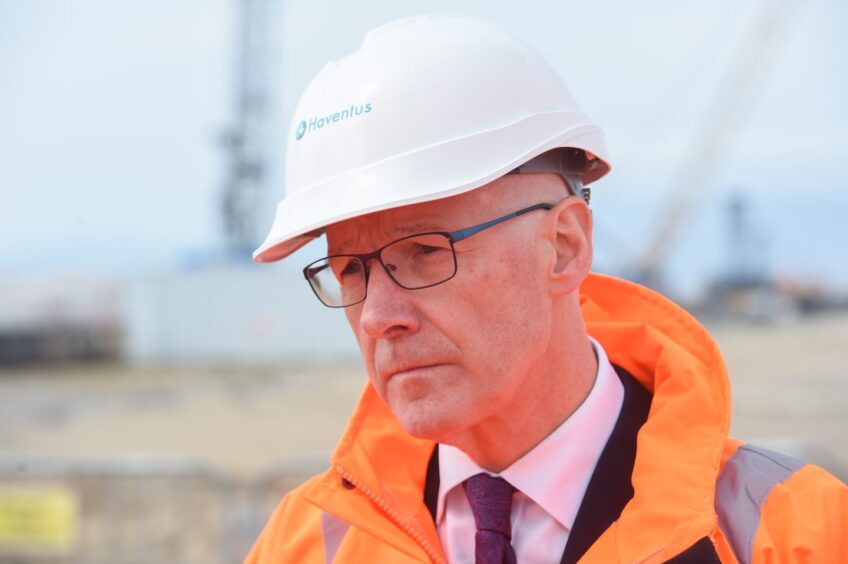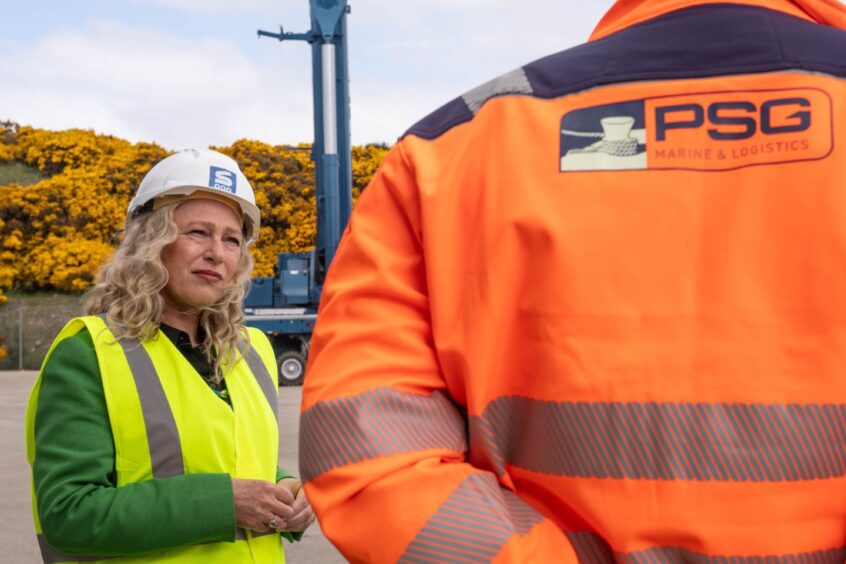Aberdeen and Grampian Chamber of Commerce (AGCC) has written to the first minister ahead of Holyrood’s Programme for Government to demand policy to support the north-east energy sector.
On Tuesday, the legislative programme for the next parliamentary year will be introduced by the Scottish government.
The Scottish government website lists that the 2025 to 2026 programme will focus on “eradicating child poverty”, “growing the economy”, “tackling the climate emergency”, and “delivering high-quality and sustainable public services”.
AGCC has argued that Scotland needs “pragmatic energy policy” that encompasses the benefits of oil and gas.
Russell Borthwick, chief executive of AGCC, commented: “This region stands ready to help deliver economic growth for Scotland – but only if policy matches potential.
“We urge the first minister to back the north-east, to restore business confidence, and to work with us to turn shared ambitions into action.”
Oil and gas ‘in significant jeopardy’
In the letter to first minister John Swinney, the Aberdeen business group called for the Scottish Government to back new oil and gas projects such as Rosebank and Jackdaw.
This is in line with findings from a recent report published by the chamber’s North Sea Transition Taskforce.
AGCC warned Swinney that the Scottish oil and gas sector is “in significant jeopardy” due to the current tax regime and planning delays.
However, both of these matters would fall under the powers of the UK government.
The oil and gas sector has been vocal about the impacts of the windfall tax, which imposes a 78% rate on operators, and delays to Rosebank and Jackdaw came after a landmark court ruling that found Westminster’s approval of their environmental impact assessments (EIA) to be unlawful.
 © Supplied by Stop Rosebank
© Supplied by Stop RosebankThe Scottish government is, however, responsible for the approval of projects like offshore wind development.
The Holyrood premiership has been criticised over its slow rate of approval for such projects; however, acting net zero secretary Gillian Martin recently told Energy Voice that measures are being taken to correct this.
“We are already speeding up consenting, and the way that we’re doing that is we’ve invested in more than doubling the capacity of our consents unit,” Matin explained.
“We have been talking to stakeholders across offshore wind for the last couple of years about this very issue and although, in terms of the information that they give us when they do the application, it takes an awful lot of time and it takes an awful lot of time to assess that.”
The Scottish government is aiming to boost the number of staff in its energy consents unit to not only progress applications faster, but also to engage with developers before submission, Martin said.
 © Supplied by Jason Hedges / DCT
© Supplied by Jason Hedges / DCTThis is something that the Chamber wants to see more of from John Swinney’s government as it called for speedier consenting times and port investment to ensure Scotland can “maximise the offshore wind opportunity” it has.
Borthwick has also called on the government to tackle issues presented by AGCC members, namely the impacts Non-Domestic Rates and rising employer costs.
He said: “Our members are overwhelmingly clear that the business environment has become significantly more difficult. The cost of doing business has risen sharply, and confidence has been shaken.
“This Programme for Government is an opportunity to reset – to back the sectors and policies that will grow our economy and deliver the transition to net zero in a sustainable way.”
Just Transition Fund ‘falling short’
 © Supplied by DARRELL BENNS / DC T
© Supplied by DARRELL BENNS / DC TLast week, Martin appeared in Aberdeen to announce the next tranche of the £500 million Just Transition Fund, which aims to support businesses in Moray and the north-east.
Businesses can apply for a share of the £8.3m pot as of Tuesday, marking the third instalment in the investment series.
However, AGCC claims that the Just Transition Fund is “falling short”, with less than 20% of the 10-year funding package committed and project activity in the North Sea slowing.
Martin explained that this year’s Just Transition Fund allocation will be focusing on where the Scottish government will get the most “bang for our buck”, which is skills development and job creation.
Alongside the points AGCC made about energy policy, the group also called for travel improvements and increased housebuilding.





















